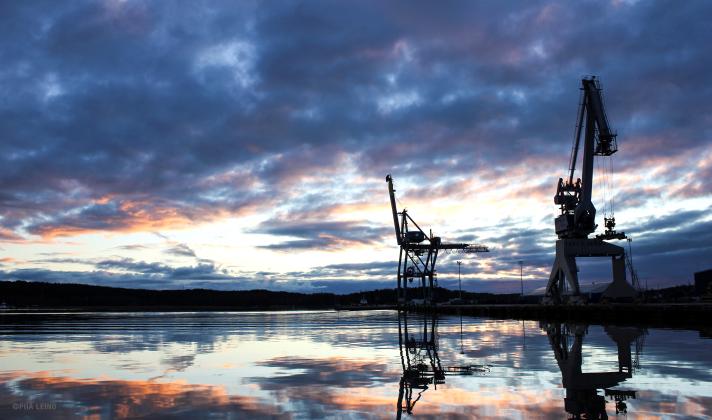The Commission’s Directorate-General for Mobility and Transport (‘DG MOVE’) set up a group of experts called the 'European Ports Forum' (EPF) in May 2017 with the aim of exchanging information and providing advice on port related matters. It also provides advice to the Commission on initiatives to promote and support a uniform implementation of Regulation (EU) 2017/352 establishing a framework for the provision of port services and common rules on the financial transparency of ports.
As part of the future activities of the European Ports Forum it was suggested to include a sub-group on "Ports as hubs for Blue Growth" to discuss, in particular, issues surrounding the evolving role of ports in a changing industrial landscape and in how ports can become dynamic nodes for blue economy clusters and blue innovation ecosystems.
As the use of the term “Blue Growth” evolves over time, DG MARE will therefore establish the sub-group on “Ports as hubs for a sustainable Blue Economy” for the purpose of examining specific questions on the basis of terms of reference that were defined by DG MARE after consultation of the members of the EPF.
The mandate of the sub-group is to support the EPF in sharing and promoting initiatives that can enhance the development of the ports as hubs for the sustainable blue economy, of port managing and operating bodies and of the different players in the port area. It provides advice and expertise for the integration of the European port sector in the blue economy.
The main tasks of the sub-group are:
- to exchange information on policies and initiatives taken at EU level, Member States level or by port industry stakeholders with regard to the blue economy;
- to provide advice, analysis of information and available data to the Commission on any other matters related to the sustainable blue economy (marine renewable energy, fisheries and aquaculture, coastal, maritime and cruise tourism, maritime spatial planning) with an impact on maritime ports;
- to prepare for the elaboration of transport and tourism hubs (transport, logistics and connections with other modes of transport, cruise and leisure boats facilities), and establish common criteria for ports to be classified as “hubs for sustainable blue economy”;
- to promote the sustainable development of the activities related to maritime transport, shipbuilding, tourism and marine energy as well as all other offshore activities within the framework of the blue economy;
- to promote the ports as industrial centers for the manufacturing of the material needed for the construction and transportation of off-shore wind turbines, as well as their maintenance;
- to promote the coastal protection, the coastal and marine construction and engineering as well as “building with nature”;
- to promote ports as key nodes for land sea interaction and to explore their role in the development of maritime spatial planning;
- to promote the transition towards the circular economy in the port context, e.g. by improving waste management and recycling[1].
The sub-group's activities will include, among others, issuing recommendations on how to address challenges related to the blue economy, the protection of the seawater in the port area, as well as on how to improve the connection with the offshore energy installations and reduce the pollution from fishing vessels. It also looks into improving the ports infrastructure to make them hubs of blue economy.
The Commission is calling for applications with a view to selecting members of the sub-group other than organisations, Member States' authorities and other public entities currently members of the EPF
[1] Circular Economy package adopted on 16 January, including the EU Strategy for Plastics COM/2018/028 final and the proposal for a new PRF Directive: COM(2018)33

